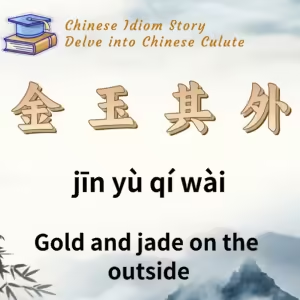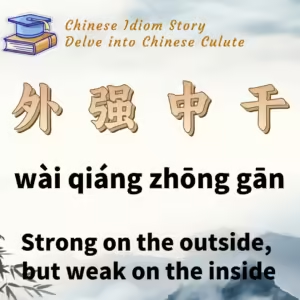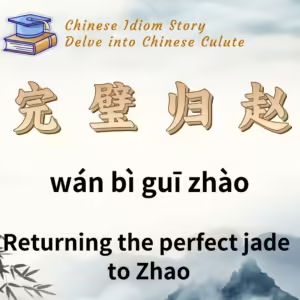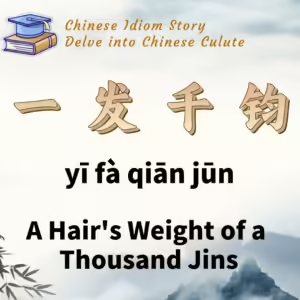
Chinese Idiom: 金玉其外 (Jin Yu Qi Wai)
English Translation: Gold and jade on the outside
pīn yīn: jīn yù qí wài
Idiom Meaning: This phrase describes something that appears attractive or impressive on the outside but is worthless or flawed on the inside. It suggests a discrepancy between outward appearances and internal quality.
Historical Source: Cheng Yi Bo Ji (《诚意伯集·卖橘者言》) by Liu Ji from the Ming Dynasty.
Idiom Story:
During the early Ming Dynasty, in Hangzhou, there was a fruit vendor renowned for his skill in preserving tangerines. These tangerines, which were preserved so well that they remained fresh and glossy even after a year, were sold at a premium price. Despite the high cost, people eagerly bought them due to their appealing appearance.
One day, Liu Ji went to buy some fruit and observed that although the tangerines had a beautiful, shiny skin, their insides were dry and unappealing. Liu Ji confronted the vendor, accusing him of deceiving customers with the attractive exterior while selling spoiled fruit.
The vendor responded with a grin and said, “I’ve been in this business for many years, and I make a living from it. If people are willing to buy, who is to say anything? It’s not just me who deceives. Look at those in high positions, living in luxury, with their lavish feasts and fine wines. They may appear grand and impressive, but many are merely a facade—gold and jade on the outside, with decay within. Why do you only see the flaws in my tangerines but ignore the similar deceit in others?”
The vendor used the tangerines as a metaphor to criticize the corruption and pretentiousness of the officials of his time. Liu Ji’s criticism was thus silenced by the vendor’s pointed remarks, highlighting the pervasive nature of superficiality and deceit.
The idiom “金玉其外” has since come to represent situations where outward appearances are deceiving, masking underlying flaws or shortcomings.






